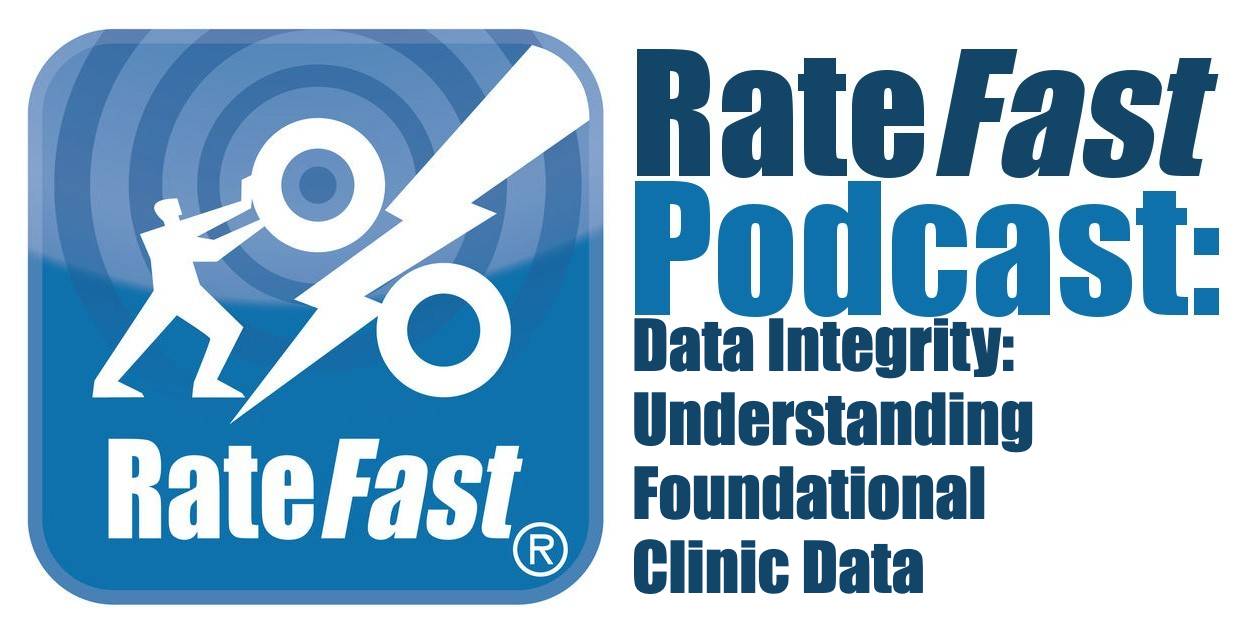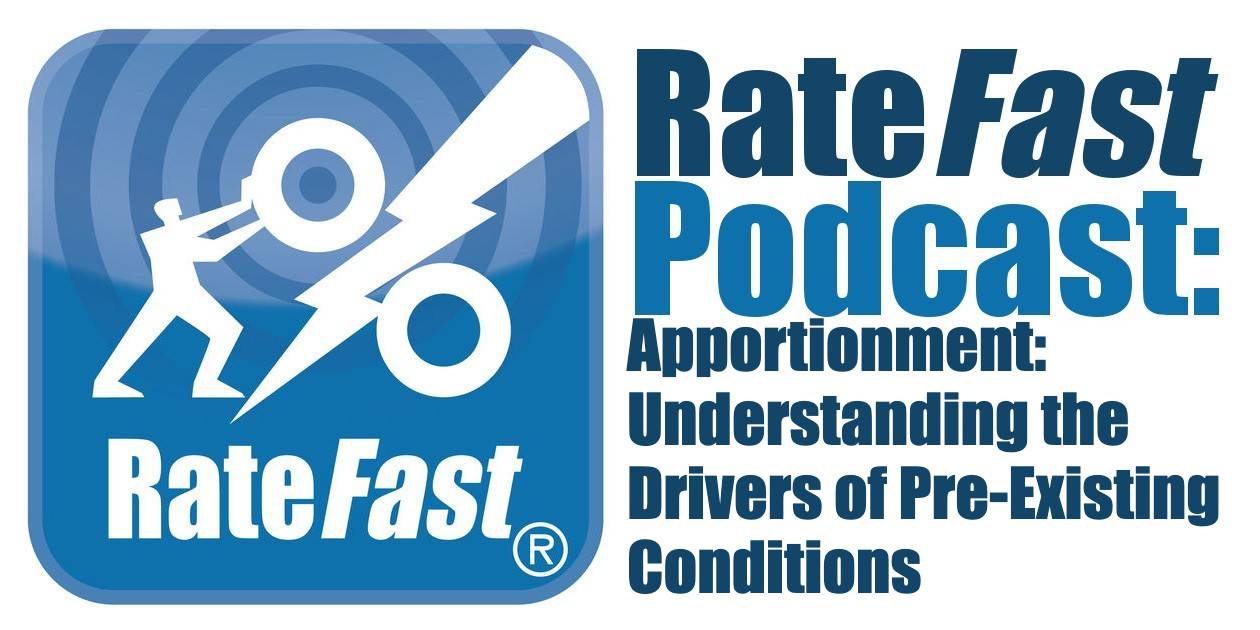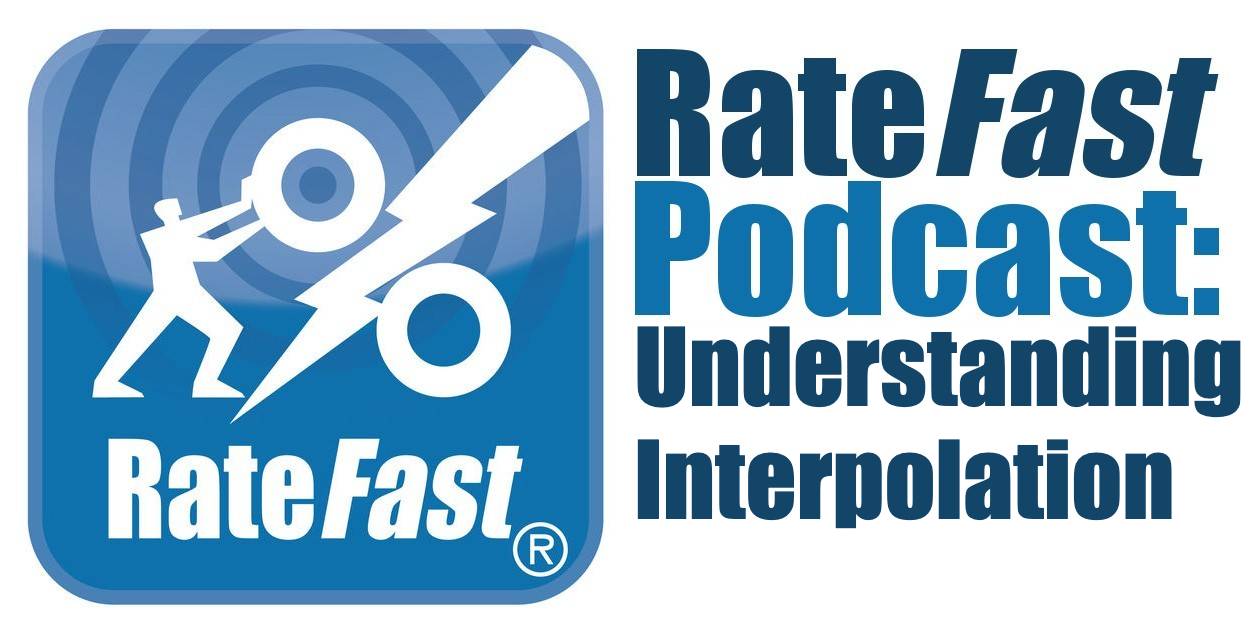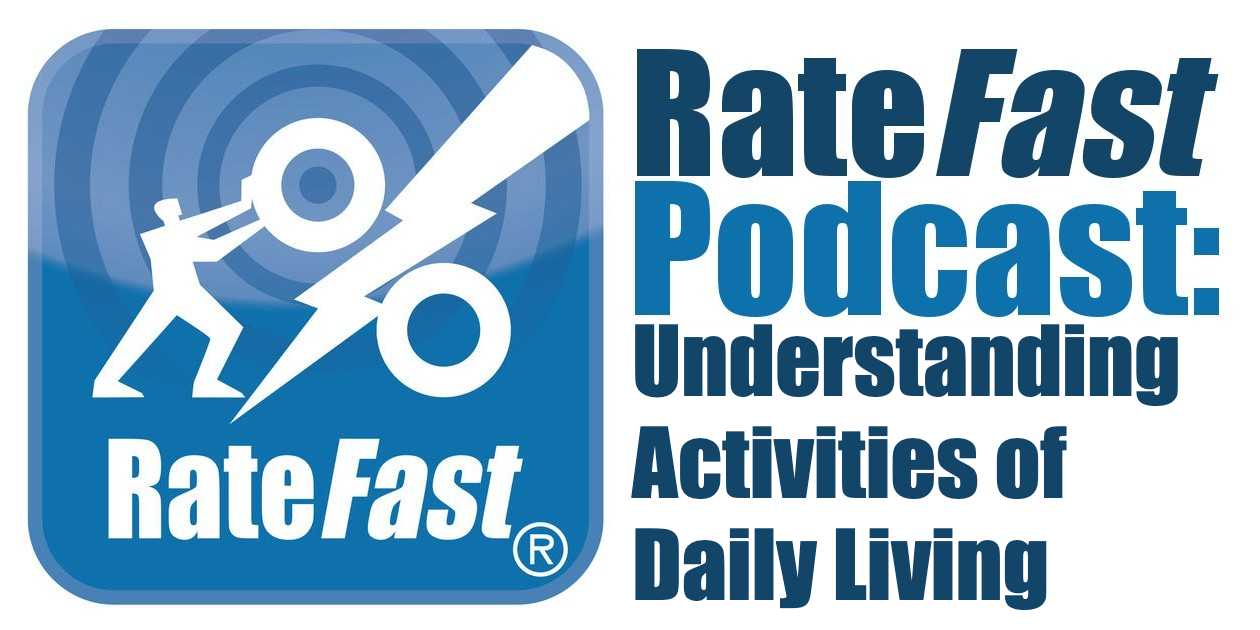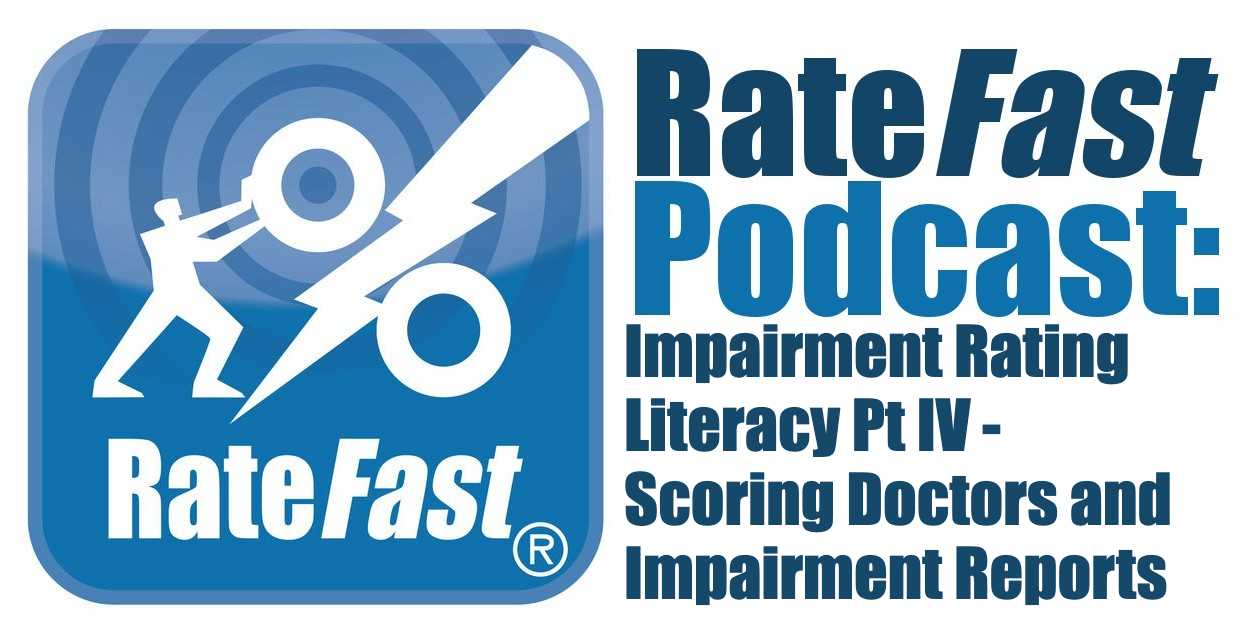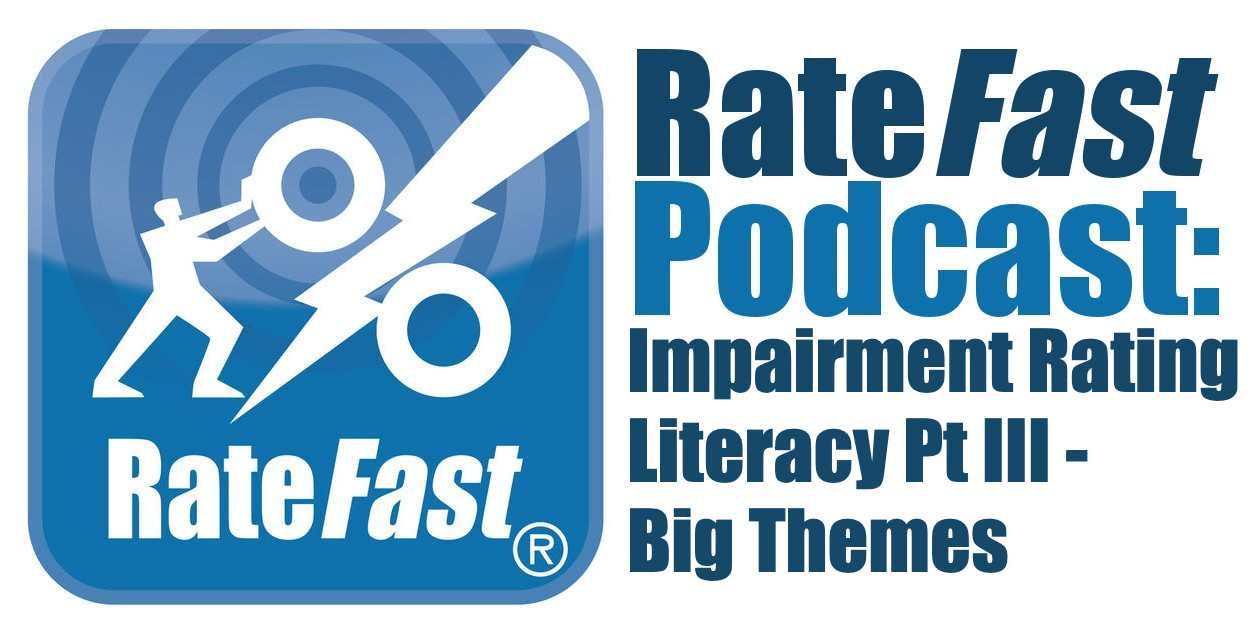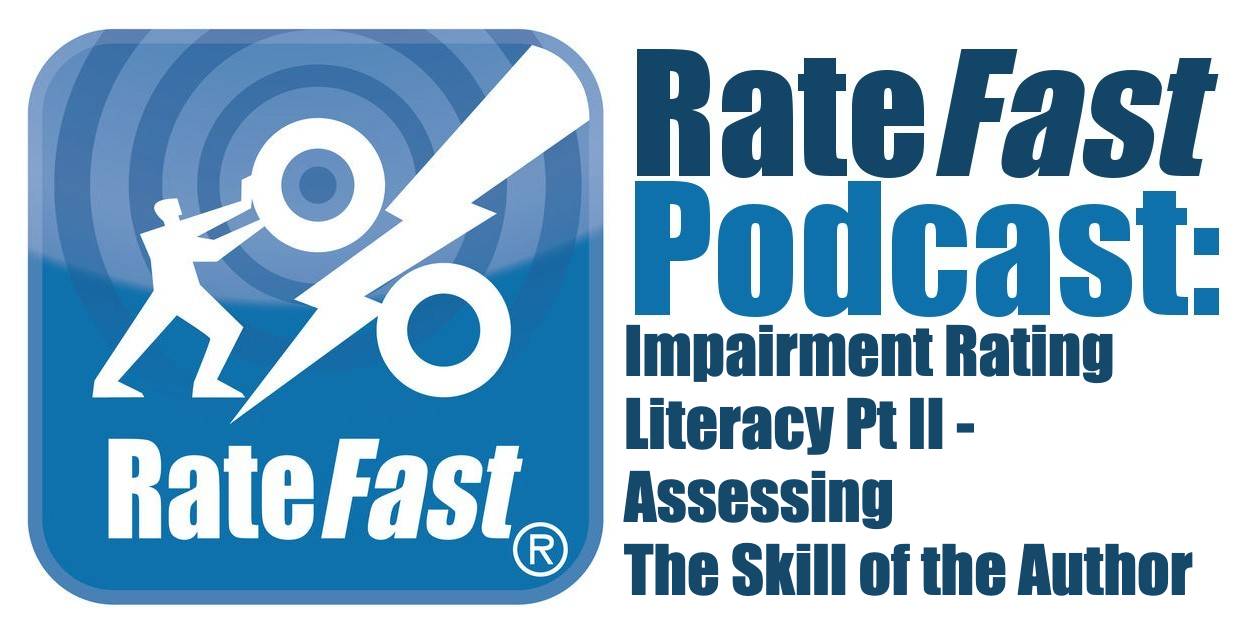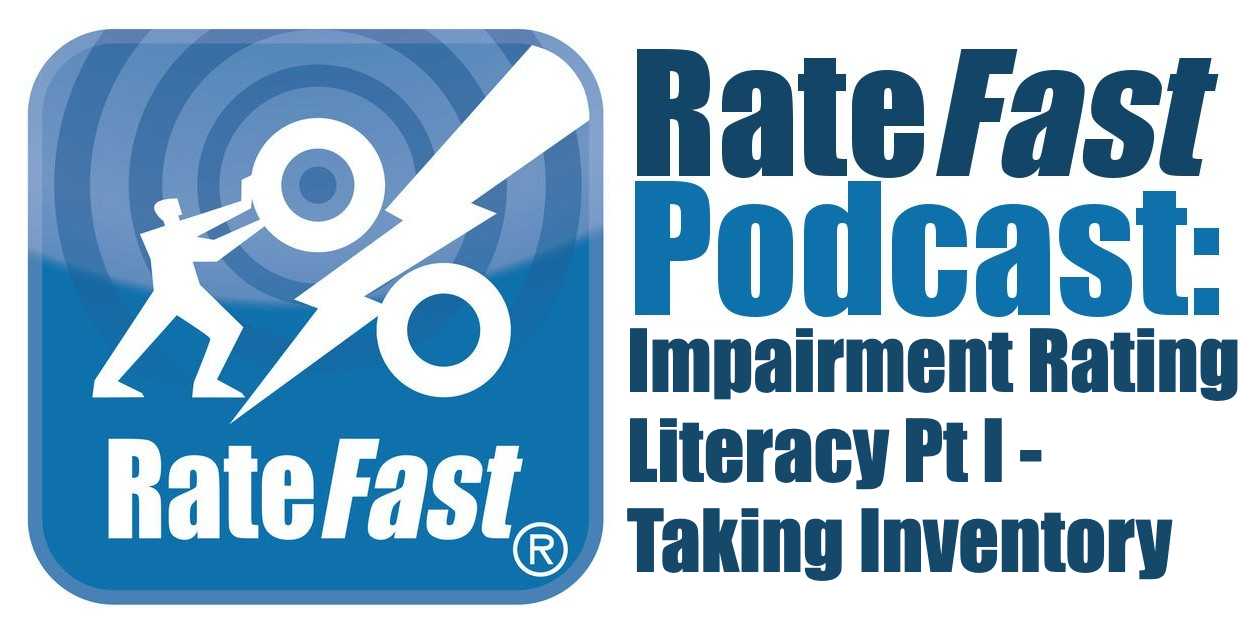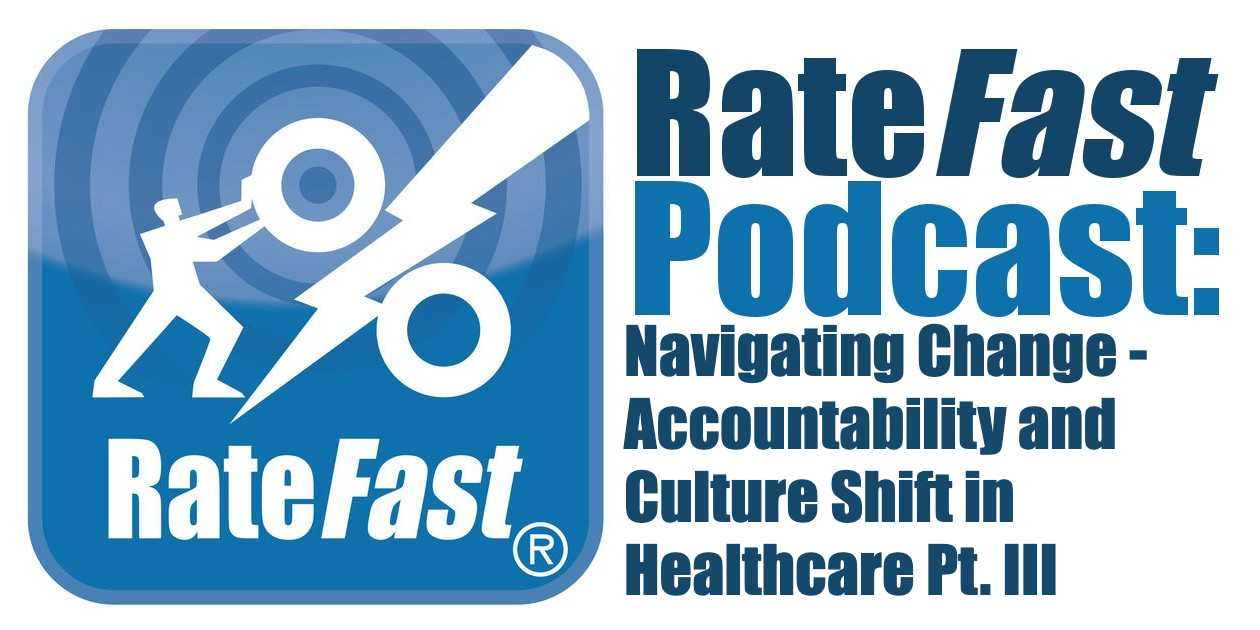Good data integrity means a report that is more likely to stand on its own when scrutinized. What does it mean for your impairment report data to have integrity? Data integrity is a concept we’ve developed at RateFast which represents the quality of the data that was put into the creation of the report, since the outcome of a report is only as good as the data that was provided.
Data integrity is provided with each RateFast report as a means to keep the claim as transparent as possible for stakeholders.
Continue reading Data Integrity: Understanding Foundational Clinic Data
